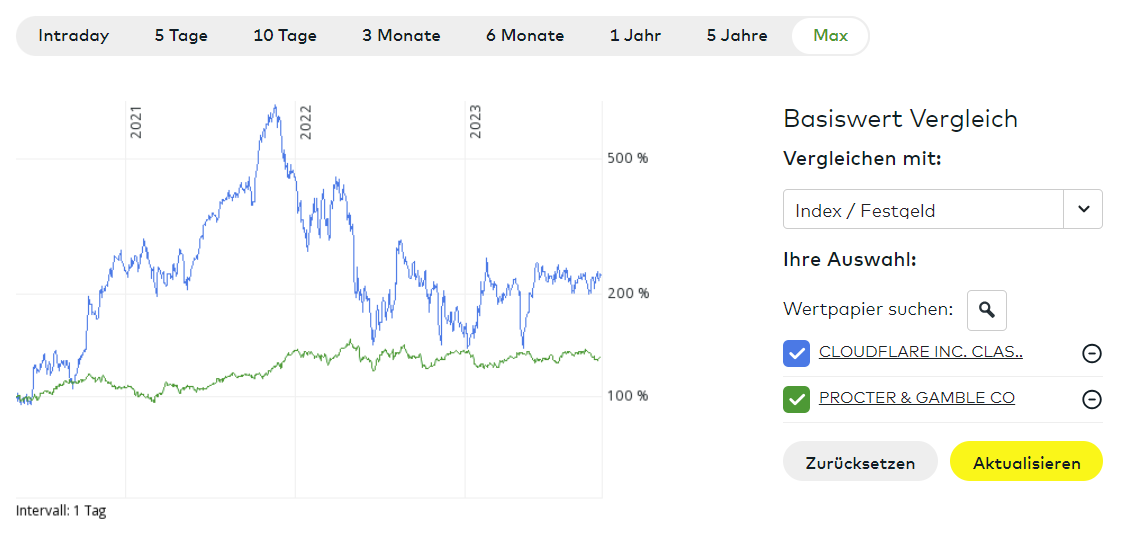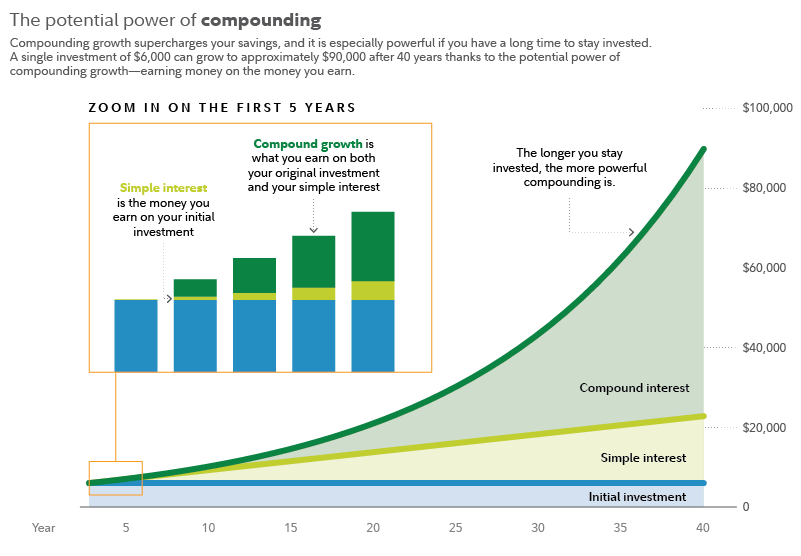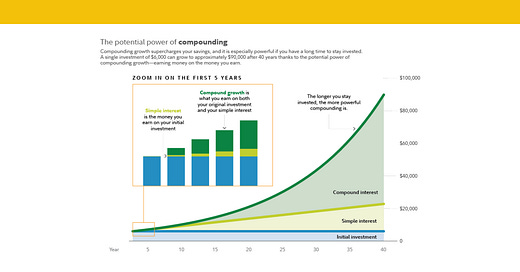Long-Term Investing: Best way to invest money long term are stocks
Unlock Financial Peace and Wealth Growth Through Long-Term Investing
The long-term investor
Everyone likes to call themselves a long-term investor.
Yet very few act accordingly.
This is something I have thought about a lot recently. After we were spoiled by a 10-year bull market leading into COVID-19, it’s hard to tolerate volatility and think beyond the short-term struggles with inflation, severe interest hikes, and recession-ish sentiment.
Buying stocks at better prices for longer
As a long-term investor, now is actually a great time to continue adding to my positions at a discount. And the longer the bearish sentiment continues, the longer I can build my portfolio at a discount. Hello, 2024! A great opportunity, if you think about it from that perspective.
Had I sold my tech growth stocks last year, I’d have lost as much as 60% on a cost basis (!!) for some of them.
After sitting through this time and regularly adding at better prices over the past year, I’m down only slightly on some positions and significantly up on others.
Valuation
This shows me that, even if you invested in or shifted to highly valued stocks at the market peak, patience allows you to come out with a gain.
That is if you are invested in companies whose thesis remains intact.
Fire & forget doesn’t work with fast-growing, richly valued stocks. What helps are the following:
Patience
Strong nerves
Regular due diligence about your investments
As of lately, I’m also more aware of valuation than before. Valuation plays an important role in that it can enhance or shrink your gains significantly. In retrospect, I’d much rather have added fresh cash to my portfolio only in 2022, and not in 2021.
However, the longer you invest, the smaller the effect and importance of valuation become. As a long-term investor, I can relax: I’ll pay more attention to valuation, but I don’t intend to become too dogmatic about it. After all, who cares today if you bought Amazon 5 USD cheaper or pricier 10 years ago…
The beauty of long-term investing
Ride out volatility and draw-downs
Some stocks, especially growth stocks, are significantly more volatile than others. Despite that, even the greatest stocks suffered severe draw-downs over extended time periods. Chris Mayer recently published a great piece about drawdowns that I recommend checking out. If you invest long-term, volatility doesn’t matter. Rather, it gives you favorable prices to add to your stocks and thus, drives returns long-term.
PS: Something I really need to get off my chest: Just because a stock has fallen farther from peak to trough, it can still be a better investment, if the overall performance is better than that of a less volatile stock:

Compounding, or: to the moon
You all know it, but it can be very helpful to think about what compounding does for you if you can sit tight for 15+ years. And we need to give our portfolios the time to do that compounding magic.

Historical outperformance of stocks
Stocks have been the best asset class to own long-term. Surprisingly, that is even true if you invested during the market peak of 1929, and held tight onto your positions through the following great depression (as outlined in the great book Stocks for the long-run* by Jeremy Siegel).
Stocks (or ETFs, for that matter) will win the performance comparison, but only if you own them for a long enough time frame.
Tax Benefits
In many countries, long-term investments qualify for preferential tax treatment. For example, capital gains on investments held for the long term are often taxed at a lower rate than short-term gains. Additionally, you save a lot of tax by not being too active in trading in and out of positions. Long-term investing with mostly inaction results in significant tax savings over time and protects your compounding magic.
I hope this provides some encouragement during this weird market. I have no idea, how long it’ll last, but I know, it won’t last forever and patience will be rewarded. In the meantime, I’m planning on adding to my existing positions and building out some new ones, as well.
Stay tuned, currently, Moritz and I are looking closer at compounding business with strong growth metrics!
If you feel anxious, I highly recommend reading One Up On Wall Street*: The great Peter Lynch suffered many draw-downs, periods of inflation and terrible markets. Yet he returned an insane amount of 29+% (!!) annualized returns to his shareholders. In his book, he has one chapter dedicated solely to reading during bad times.
PS: Reading books is a much better investment of time than reading market news and pessimist reports. 😉
TL;DR
Don’t let the market swings get to you.
Investing for the long-term will help you:
Weather volatility so that it makes you wealthier, not poorer
Maximize the compounding effect for your portfolio
Statistically outperform all other asset classes
Pay fewer taxes
Happy Investing & enjoy the rest of your weekend!
Disclaimer: This text is for entertainment purposes only and does not represent any investment advice, stock buying or selling recommendation, or any other financial advice. So please always do your own due diligence and make your own decisions. See our disclaimer for more details.
*This post may contain affiliate links that at no additional cost to you, I may earn a small commission.




Hi Lisa,
Thank you and Moritz for your thoughts.
I am curious about valuation, since different people use different valuation metrics like EV/FCF, P/S, PE, Forward PE, and so on... Sometimes even using few valuation metrics at the same time.
How do you decide which one to use and all these calculations... wasn't investing to be comprehendible and not to get lost in those numbers?
Thanks,
Martin